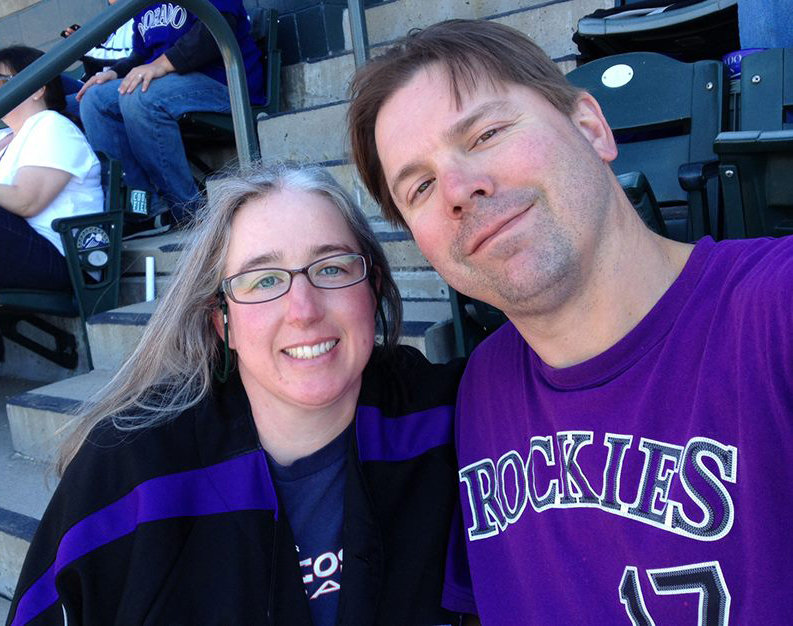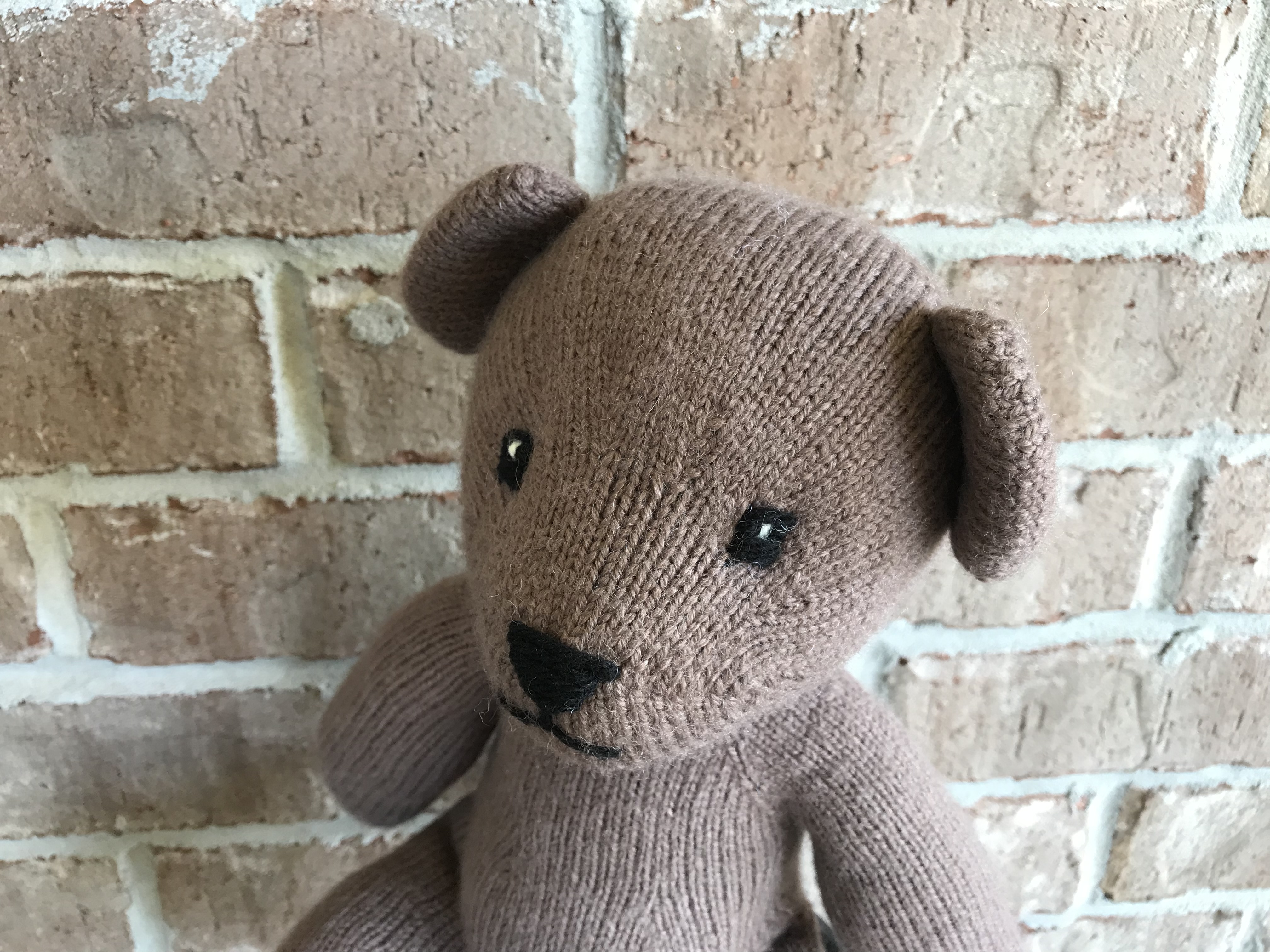
Jordan
Toronto, ON
Female, 28
Space Waitress, Trolley Dolly, Stewardess...everyone has their own term for us. We are the baby-sitters, life-savers, servers, cleaners and all-around problem solvers for any and every in-flight issue. Sometimes we get a bad rep for being apathetic and miserable despite having what looks like a glamorous job, so here's a peek into the gritty details beneath the shiny surface to explain why the job - though incredible in lots of ways - is more than just snappy uniforms and matching luggage.
The day-to-day responsibilities of an FA are very different from the worst-case-scenario responsibilities for which we train. Thankfully, on a daily basis my job is just to make sure the plane is tidy and safe to board, help people get settled in, and then bring them coffee and cookies once we're in the air. It's a pretty simple gig, the hardest part might be cutting off someone who's had too much to drink, or cleaning up after someone is sick. On paper however, an FA's duties are a lot more serious. We have to be prepared to fight fires in the cabin, perform CPR if needed, evacuate aircrafts, haul life rafts out of the overhead bins, react promptly during a decompression, and calm panicked passengers just to name a few. Ultimately we are there to keep passengers safe, and manage the cabin in case of an emergency. But since they rarely occur, we are mostly performing our secondary duties which are related to inflight service. Consider us the airline version of Clark Kents and Bruce Waynes just waiting for duty to call!
Yes it is true, but I found people exaggerated how bad it would be. I don't really notice it so much, but some FA's order their uniforms in a size up from what they typically wear just to stay comfortable through the ups and downs. I have been flying for a few years and haven't experienced anything unpleasant or long-lasting - I just look a bit bloated after a long day, but feel fine in the morning! My good friend notices changes primarily in her feet - in the morning her shoes fit but by the end of a day spent in the air they feel loose, we can't figure out why.
My two pieces of advice are this - eat healthy! Drink lots of water on the plane and avoid foods high in sodium (no ramen noodles no matter how tasty they are!) and avoid beans and legumes... no need to encourage bloating!
Also, invest in a pair of high quality compression tights or socks. Ask your doctor for a prescription for them, and most airline health plans will reimburse you for a portion or all of the cost (they are expensive!)
Honestly though, if you're only flying for 3 months I wouldn't worry about it, good luck!
I really enjoy my job! When it comes down to it, it's a customer service job, and I've always enjoyed working with people over working at a computer. I was a server before this and there are a lot of similarities between the two jobs, just trying to make people comfortable and happy for the short time you're with them. I'd say that the stressful part is the time sensitive nature of the job. Airport agents can be really pushy about getting flights out early, and naturally passengers get anxious if there are any delays. I'm also stressed if we run out of supplies (food, water, paper towels) mid-flight since our resources in the air are limited, but greatly impact the customer's experience. There are so many variables in the job - destination, crew, and at my airline, your position within the crew - that it's hard to describe what's typical but I'll try... I show up at the airport, clear customs if I'm flying to the US, report for duty at the gate 50 minutes before the flight departs to meet the crew. We complete the aircraft security checks on emergency equipment and then have a briefing in which we discuss hypothetical emergency situations and how we would handle them, as well as the flight time, weather, anticipated turbulence, etc. After that it's boarding, and if you've ever flown before you'll have seen the rest; safety demonstration, service, clean-up, landing and deplaning. While you guys go collect your baggage we clean the plane and head home or to the hotel. If there have been any illnesses on board we have to file some paperwork but otherwise once you step off the plane you can dust off your hands and walk away from the day. That's one of the things I love about the job - it doesn't follow you home, which means once I walk in the door I can put the uniform away and just be me!
Bunyan Jr, cute ;)
Well please don't hate the messenger but I have yet to come across any rules or rights that can help you out. With the exception of taxi, take-off and landing, anyone can recline their seatback whenever they feel like it. My advice to you is, recline your own seat for the extra space, and if at all possible, try to reserve a seat in the emergency exit row! There will usually be an extra fee attached to selecting a seat in advance but it'll cost way less than first class and that thirty or so bucks could translate into several extra inches of legroom depending on the aircraft model.
If you really can't spare the money, just be sure to check in online ASAP (usually 24 hours before departure) to see if any seats in the emergency exit or bulkhead rows are still available. I work a lot of flights where those seats are still empty after takeoff. Failing that, charm the pants off the customer service agents who check you in and oversee boarding. They can pull more strings when it comes to seat assignments than flight attendants. Good luck!
iPhone & iPad Technician
 What brand do you think has the poorest quality / workmanship?
What brand do you think has the poorest quality / workmanship?
Toymaker
 With all the high-tech kids toys, is there still a demand for traditional ones?
With all the high-tech kids toys, is there still a demand for traditional ones?
Fashion Forecaster
 Are people in the fashion world as rotten as those in Devil Wears Prada?
Are people in the fashion world as rotten as those in Devil Wears Prada?
Oh that's so sweet! I'm not sure there's any one way to phrase it but anything along the lines of "completed inflight training" or even just "graduated" would be appropriate, I think.
If you wanted to do something kind of cute though you could model the invititations after boarding passes or a customs card and give the information that way. The time and place of the party could be the Destination and Departure Time, and then "celebrating So-and-So's graduation from Flight Attendant school" or, "my sister is taking flight in a new career!" could be the Reason for Travel. Just an idea (and a cheesy one at that), but have fun with it!
i hope your sister lands a great job and enjoys her new gig! Send her my congratulations :)
Good question - the FAA and Transport Canada are always examining the rules surrounding crew rest and tightening up the restrictions in order to mitigate the risk caused by fatigue. Those signs you see on long stretches of highway are right - fatigue is deadly! It's a pretty serious issue for commercial air carriers.
Currently in the US, once a crew has finished their flights for the day - regardless of how many hours it amounts to - they are entitled to a minimum 10 hours of undisturbed rest, not including the transportation time to and from the hotel. Of course many layovers are longer than 10 hours (up to 48 at my airline) and that seems to be determined by the flight schedules. If the airline only operates one flight a week to and from a certain city, and the distance is too long for a single crew to do in one day (ie a return trip would exceed 14 hours) the inbound crew will stay for a full week, until the next flight outbound. Pretty sweet if you get stuck somewhere with a beach!
These rules are changing though, and getting stricter all the time. So it will be more common for crews to require more rest according to how many time zones they've crossed that day. Also, airlines will have to dissuade their employees from commuting, since it's not uncommon for crew to fly in from another state or province before beginning their shift, but that soon may be prohibited just to reduce potential fatigue - a cause of many air incidents and accidents.
I do a lot of 'one days', which means I'll fly to a city with one set of travellers like you mentioned, and scoop up a new set for the return segment. It's funny when the destination is a sun spot like the Caribbean, and all the passengers going down are pale and eager to party, and on the return flight the guests are sunburnt, peeling, and jonesing for water and a pillow. I guess those are the signs of a good week!
On a regular day, FAs spend the time during flight setting up carts for service, completing that service (what we offer will vary from route to route, and depend on the flight time), then we restock, clean up, and if there's any time leftover we have lunch and flip through a couple gossip rags! We also do seatbelt checks if there's turbulence, hand out customs cards, and do cabin walkthroughs a few times each hour to make sure all the passengers are comfortable and happy. The work itself is very routine, but because the crew and customers are always new it keeps life interesting!
Security checks are something that we do on flights to and/or from specific countries because there is a greater risk of someone wanting to transport an illegal or dangerous substance to that country (ie: malicious intent or smuggling), or because the airport security in a city does not meet the international standards (for example, some airports are so small that they do not have security checkpoints to scan carry-on items). On these flights, the crew must literally tear the cabin apart and search every nook and cranny that passengers hypothetically could have had accessed, and search for suspicious items. It's a total drag, and we don't get paid to do it, but it's for our own safety so we grin and bear it!
-OR-
 Login with Facebook
Login with Facebook (max 20 characters - letters, numbers, and underscores only. Note that your username is private, and you have the option to choose an alias when asking questions or hosting a Q&A.)
(A valid e-mail address is required. Your e-mail will not be shared with anyone.)
(min 5 characters)
By checking this box, you acknowledge that you have read and agree to Jobstr.com’s Terms and Privacy Policy.
-OR-
 Register with Facebook
Register with Facebook(Don't worry: you'll be able to choose an alias when asking questions or hosting a Q&A.)